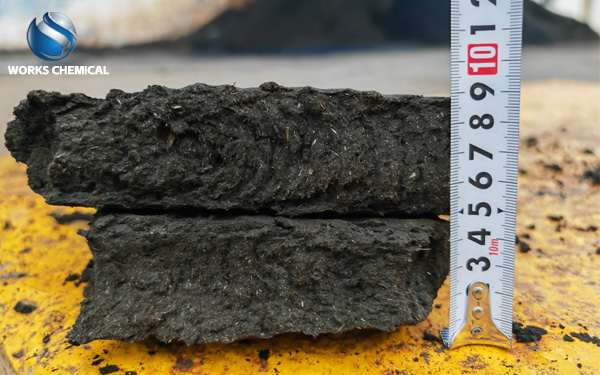
Sludge enhancers can indeed be used in pharmaceutical sludge to reduce sludge moisture content and reduce business operating costs. The following is a detailed analysis of this application:

Application of sludge synergist in medical sludge
Sludge enhancer is a chemical agent that can change the surface structure of sludge, reduce the surface load of sludge solids, and destroy the structure of bacteria. Its main components include inorganic compounds, sludge surface structure modifier, degreaser, wall breaking agent, etc. These components work together to make the sludge particles more easily separated from water. In medical sludge treatment, sludge synergists can significantly reduce the moisture content of sludge, so as to achieve the reduction and stabilization of sludge.
Two. Effect of reducing sludge moisture content
Sludge synergist through chemical conditioning, can destroy the colloidal structure and bacterial structure in the sludge, making the sludge particles more easily dehydrated. In practical applications, when combined with dewatering equipment such as plate and frame filter press, the sludge moisture content can be reduced from more than 90% to 40%-60%, or even lower. This significant dewatering effect helps to reduce sludge volume and reduce transportation and disposal costs.
Three, reduce enterprise operating costs
Reduce agent costs: Although the initial investment of sludge enhancers may be higher, due to their high dehydration efficiency, the amount of traditional water treatment agents such as lime can be reduced, thereby reducing the cost of agents.
Improve the efficiency of dewatering equipment: the sludge synergist can shorten the time of the press section and improve the work efficiency of the dewatering equipment. This means that more sludge can be treated in the same amount of time, thus reducing the cost of treatment per unit of sludge.
Reduce subsequent treatment costs: Because sludge enhancers can significantly reduce the water content of the sludge, the volume and weight of the sludge are reduced, and the transportation and disposal costs are reduced. At the same time, the dehydrated sludge is easier to burn, brick or compost and other resources, further reducing the cost of follow-up treatment.
Four, precautions
Although sludge synergists have shown significant advantages in medical sludge treatment, the following points still need to be noted in the actual application process:
Select the appropriate sludge synergist number: different types of sludge synergist have different composition and performance characteristics, and the appropriate model should be selected according to the specific nature and treatment requirements of medical sludge.
Control the dosage of chemicals: Excessive chemicals will not only increase the cost of treatment, but also may have a negative impact on the environment and ecology. Therefore, the dosage of the agent should be strictly controlled to ensure that it exerts the best effect under the premise of economy and environmental protection.
Strengthen equipment maintenance: dewatering equipment is one of the key equipment in the sludge treatment process. The maintenance and maintenance of the equipment should be strengthened to ensure its long-term stable operation.
In summary, sludge synergists have the advantages of significantly reducing the moisture content of sludge and reducing the operating costs of enterprises in medical sludge treatment. In practical applications, it is necessary to select the appropriate model, control the dosage of the agent and strengthen the maintenance of the equipment to ensure the best effect.